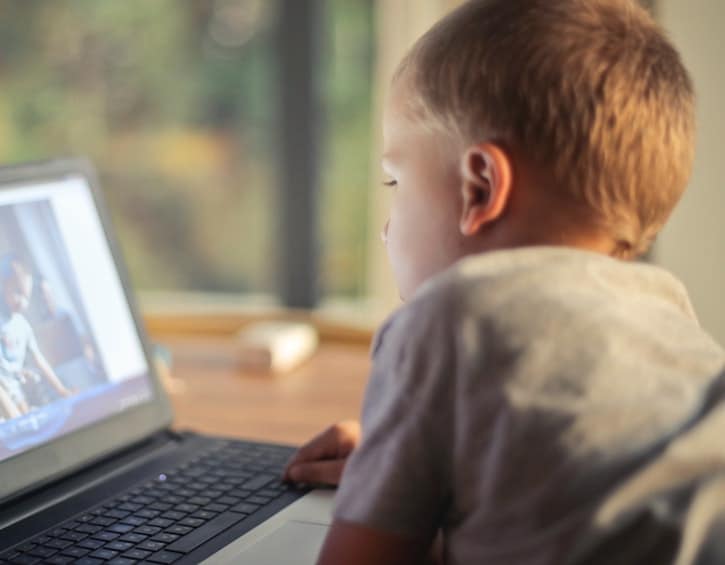
 Post Category - ParentingParenting - Post Category - Tweens & TeensTweens & Teens
Post Category - ParentingParenting - Post Category - Tweens & TeensTweens & TeensHow to balance the potential of your kids, while still keeping them grounded in childhood.
Children grow up so fast these days it’s hard to keep up, and we’ll be the first to admit that they’re exposed to so much more than when we were their age! Most days, you might find yourself struggling with Grade 4 homework (we hear ya!) and the fact that the syllabus that tided us over for our entire school journey, now barely covers what’s taught in middle school! It’s not like you can just randomly dismiss what kids know and are talking about, because they are really smart both inside and outside the classroom, absorbing everything like little sponges (whether it’s the latest political developments, global warming, soccer news, swear words or knowledge of body parts).

Fortunately (or unfortunately), you’re not the only one who might be struggling to keep up with the younger generation. Remember that old adage – if you can’t beat ’em, join ’em? Well early exposure through technology, be it the TV, smartphone or computer, isn’t a passing fad, it’s here to stay.
So instead of fighting it, perhaps the more mature (and certainly less stressful) route would be to embrace this fundamental shift in growing up and reach a mutually agreeable compromise for everyone involved? A teacher we spoke to at a leading international school in Singapore agrees, “Children today are growing up in a very different world to the one we knew as children. As parents and educators, we do not share the same background or experiences as our children. It is increasingly difficult to say “When I was a kid…”, because today’s child does not live in the same context. However, this is their reality and the world we need to learn and understand, so that we can better support their growth.”

So how do we successfully navigate this minefield as parents, whilst simultaneously ensuring that our kids still have a childhood and don’t rush growing up? Our advisor continues, “It’s important that there is balance in children’s lives, where they fully experience as much as possible while enjoying growing up. As they experience life, we need to construct an open dialogue between parent and child, where issues can be openly discussed and the child’s voice is heard.” Here’s how to try opening up the conversation with your young adults:
- Encourage curiosity. It’s promising that we have a generation of children who are aware of the changes in the world and who want to understand the impact and consequences of our actions.
- Allow them to ask questions. As parents, it’s our job to ensure our kids discover the answers in a balanced and controlled way, by developing rules together about technology use. It’s then up to you, as the adult, to enforce those rules because they do matter.
- Face-to-face communication is essential. Especially in a world where online chat is pervasive. We should be encouraging in our children to be engaged and to participate.
Our challenge as parents is to try and help them navigate through an open, technology-based world that has limited points of reference to our own upbringing.

An experienced PYP-trained teacher in one of Asia’s most popular international schools says that students are coming to school with a greater level of prior knowledge and experience than in the past by absorbing what they see online and on TV. “As a teacher, I have noticed that the discussion possible with a class of 10-year-old students now is very different to what it was ten years ago. Even when introducing new concepts, many students are able to comprehend, or at least make connections, to those prior experiences, which is fantastic. The level of maturity in these discussions suggest that children are definitely growing up quicker than we did. Having said that, it is still important for children to be children”.
Parents and educators have a responsibility to ensure children have unstructured play time, engage in sport, can spend time with their friends and have the opportunity to make new friends. “All those things we did are still so important. It’s all about balance.”

If you’re in need of further inspiration to stretch your tween’s childhood that little bit further and get them away from their gadgets, get the family together and consider a few (or all!) of the ideas below. After all, it’s not just your child that’s experiencing their childhood – you’re making memories right alongside them as well:
- Get active! Grab the football and head to your local park for a kick around, or dust off the softball set. Alternatively, find some age-appropriate activities to get your kid’s blood pumping and get them socialising (think sports classes, dance lessons and gymnastics).
- Connect with nature and take a family camping trip, or make a picnic together and go for a family hike before eating out in the open air.
- Make travel memories! Pack your bags and take a weekend trip (Macau perhaps?) or travel further afield.
- Start some new family traditions and routines and try to stick to them where you can. For example, make the most of the festive period by putting your Christmas decorations up together (or Diwali, or Hanukkah…).
- Have dinner together at the same time each night, visit your favourite Sunday roast spot, or try a different family-friendly brunch once or twice a month (or every weekend, who’s counting anyway?) – just make sure it’s mobile phone and iPad free time!
- Get creative and try making some art to decorate your pad (or give to the grandparents)!
- Encourage your kids to read more. Stimulating creativity and imagination, improving spelling, expanding vocabulary and promoting patience are just some of the very good reasons to pick up a book. Take a look through our top book picks from 4 to 14+ for inspiration.
- Be social in real life – not just on the screen! Set up play-dates, sleepovers, or encourage your teens to hang out with their friends.
- Limit screen time on gadgets. While the internet and tech can be a wonderful way to support learning and help your child to thrive, check out our rundown of websites and apps that can help you feel confident and in control.
- While Friday nights might have once been about which bar to hit up (pre-kids of course, ahem), why not arrange a weekly family games night? Interact and have fun – just don’t flip the board if you lose at Monopoly again.
Finally, don’t do too much! It might sound contradictory to conclude with this point, but there is beauty in just being. Slow down, relax with a movie, go for a family walk and smell the roses, but most importantly appreciate the time you have together. Childhood is fleeting so enjoy every second before looking forward to what’s coming next.
Read more: 50 Things To Do With Kids In Hong Kong Before They Grow Up
Editor’s Note: This post was originally published on 5, June 2017, by Priyanka Elhence and updated by Alex Purcell Garcia on 22, March 2019.
 View All
View All











 View All
View All





 View All
View All


 View All
View All













